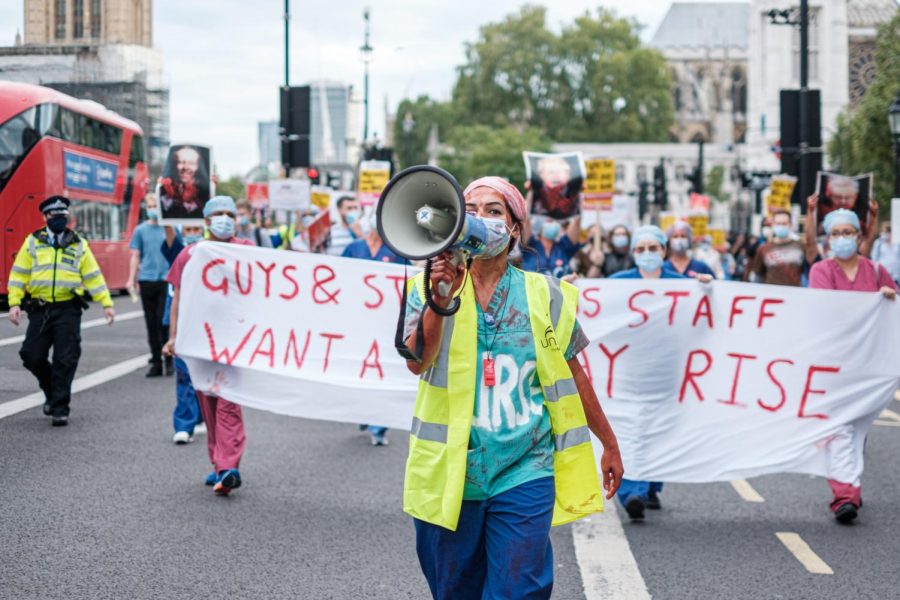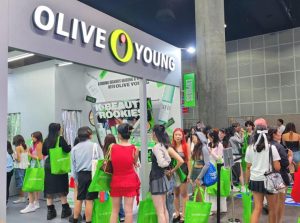#Striketober sweeps the world
Nov 8, 2021
In recent weeks, a novel hashtag aptly describing the hectic succession of protests that have characterized this month has been gaining traction: #Striketober. During the COVID-19 pandemic, many middle-class workers felt exploited by companies paying employees low wages for longer hours while making increased profits.
The sudden surge of strikes has stemmed from workers expressing their pent-up frustrations and recognizing that industries are desperate to hire and retain workers. Unprecedented leverage of laborers is compelling employees from a great variety of industries to join unions and strike.
“News channels predominantly cover pandemic news and union strikes,” Brian Lee (12), a socially aware SIS student, said. “I can not help but become a bit worried about this impacting our daily lives such as more delays in services and goods.”
In the first week of October alone, more than ten labor strikes were reported in the US. Thousands of fed-up healthcare workers, factory workers, coal miners, bus drivers, and many more are standing up against dire working conditions.
South Korea has not been an exception to the wave of strikes that have impacted the international community. Transportation workers for CJ Logistics, a large supply chain management company, have gone on hunger strikes.
“In Korea, I do not often encounter issues with delivery,” Morgan Miller, a frequent user of delivery services, said. “That is not to say that I have recently noticed tangible differences because of supply chain issues. Due to the shortage of microchips used in Playstation 5, it is out of stock everywhere. It is upsetting.”
Due to economic issues amidst COVID-19, supply chains have been facing global shortages of products. The ongoing labor strikes have only further disrupted the already fragile supply chain.
Currently, although prices are lower, shortages will irritate customers in the long run. Many retail firms started to advertise earlier “Black Friday” and “Christmas Shopping” events due to supply shortages. Never before was Christmas shopping encouraged in October, but with such uncertainty, stores are planning strategically.
“Amazon is starting to advertise Christmas products,” Hannah Kim (12), an active Amazon user, said. “I do feel like more companies are launching their holiday products and promotions earlier than before.”
Some experts claim that strikes can only damage the economy and negatively impact employees in the long run. For example, it is impossible for society to put an end to the COVID-19 era without healthcare and medical workers, meaning poor working conditions will prolong an extended pandemic period.
While some economists express their concerns about extended strikes, workers argue that they have no other choice. Many medical workers working in infectious disease isolation wards have continued to complain about their “work marathon” because of a staff shortage, yet their voices have been ignored.
Employers face the decision of whether to comply with workers’ requests or deal with the consequences of prolonged strikes.
“For some industries, it reflects very real concerns regarding fair compensation, work hours, and feeling valued in the workplace,” James Kowalski, social studies teacher at SIS, said. “However, some labor groups are using this tight labor market as an opportunity to take advantage of this situation. Just how altruistic these strikes are can vary widely depending on the situation. ”
He concluded by saying, “If the strikes can lead to positive outcomes for under-compensated and underrecognized groups, then that may yield to long-term benefits.”







